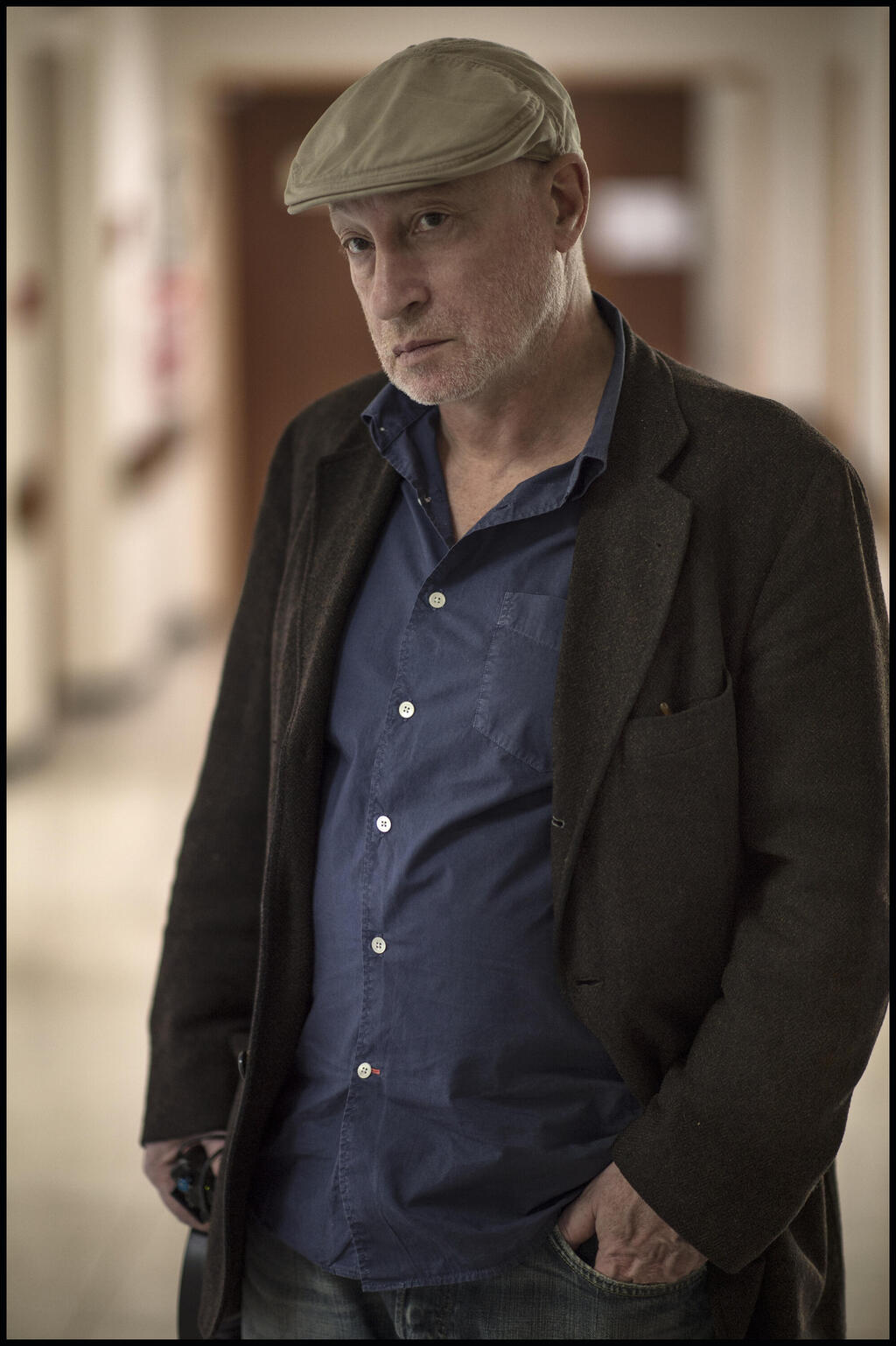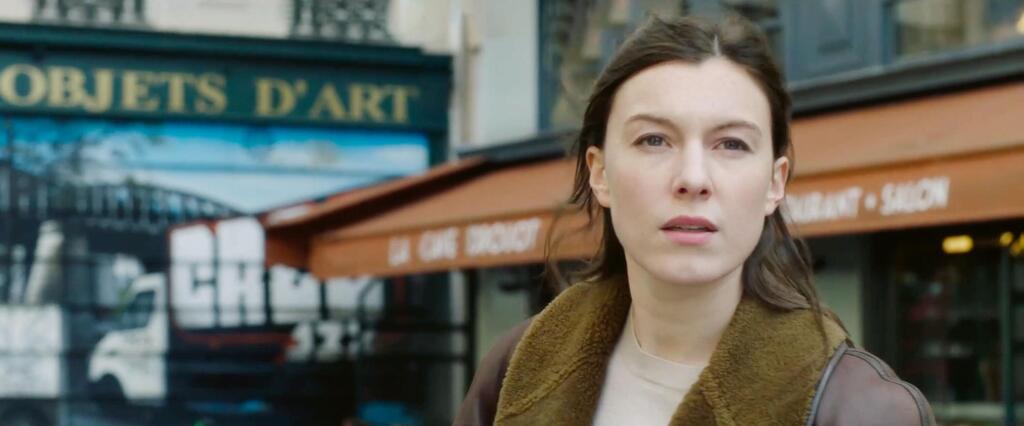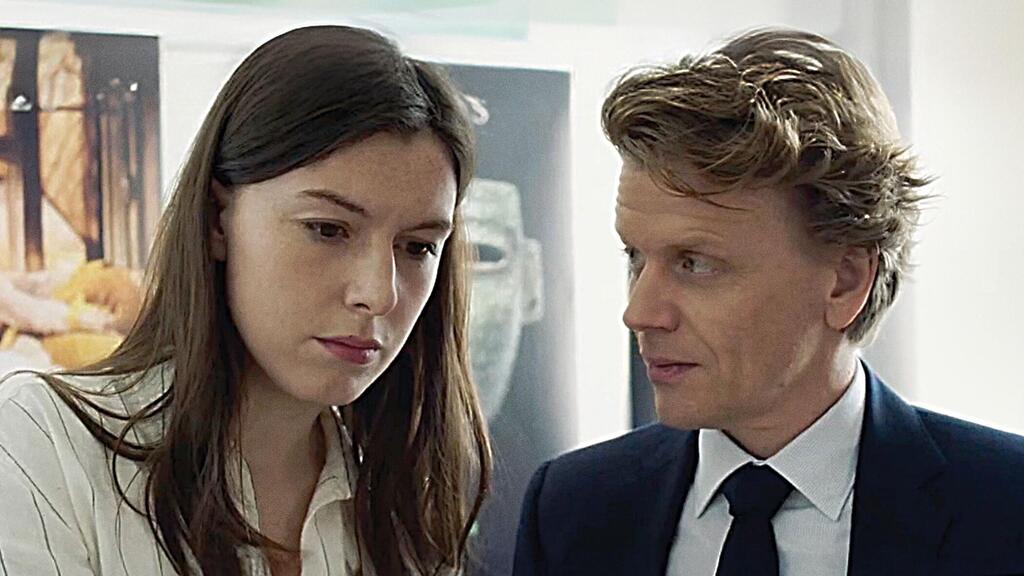Hundreds of thousands of works of art and cultural treasures, along with millions of items that belonged to Jews, were looted by the Nazis after they came to power and during World War II. Most were never returned to their owners or heirs. These crimes were ignored for years, but in the last decade, more stories have come to light, increasing media and public interest and prompting even Hollywood to address the matter with films such as George Clooney's "The Monuments Men" or "Woman in Gold" starring Helen Mirren.
The latest film dealing with the stolen art will hit screens this weekend. "Auction" (originally titled "Le tableau volé",) was directed by Jewish-French director Pascal Binitzer. It is inspired by a true story about the works of Austrian artist Egon Schiele, an expressionist painter who was a protégé of Klimt.
At the center of the story is Shiele's 1914 work "Withered Sunflowers." The painting expresses the artist's dark mood at a time when Europe is on the brink of World War I. His use of sunflowers was a tribute to Van Gogh's famous and masterful painting.
The Nazis confiscated "Withered Sunflowers" from Jewish-Austrian art dealer Karl Grunwald. It was sold at auction in 1942 and soon after, had disappeared. Grunwald survived the Holocaust, but his wife and daughter perished in a concentration camp. He searched for the painting and other stolen works from his collection until his death. His heirs feared that "Withered Sunflowers" was lost or destroyed.
In the early 2000s, the lost painting was found in the suburbs of the French city of Mulhouse, near the French-German-Swiss border, in the home of an employee at a chemical company. "The painting was discovered by a modern art expert working at one of the major international auction houses," Bonitzer told me during an interview in Paris. "It turned out that the painting had been kept in a room heated by a coal stove for 70 years. As a result, it was very dirty."
Why did this story captivate you?
"I was working on a film about the manager of an auction house. I didn't know this environment, so my partner Eliana Lulik and I conducted quite a few interviews—we spoke with gallery owners, employees at auction houses, antique dealers, and so on. One of the interviews we conducted caught my attention, and that led me to the story of Egon Schiele's 'Withered Sunflowers.' The circumstances of the painting's discovery fascinated me. There was something very mysterious about that house."
Bonitzer said that it wasn't just the circumstances of the painting's discovery that grabbed his attention. "I was also fascinated by the clash between the world of auctions and money and the world of the young man, who was completely unaware of the high monetary value of the artwork hanging in his room. This film also allowed me to talk about the scope of the looting of Jewish property by the Nazis and their occupation of France. In my films, I try to balance between the dramatic and the comedic, but since this is about the theft of Jewish property, the tone in 'Auction' is a bit more serious."
Can you explain why more filmmakers and people in general are now interested in this topic?
"Every year, paintings and artworks, looted during the war, are found. Their discovery leads to disputes, complaints, and battles over inheritance. Such things are always interesting. Sometimes, when paintings are found, the question of authenticity arises—are the paintings indeed real or perhaps forgeries? "The art world is tainted by money, so the likelihood of fraud is a constant threat. Forgers are a league of their own, and some are even very famous for their skills."
In 'Auction,' I didn't want to deal with the question of authenticity. Once the painting by Egon Schiele is discovered in the worker's home, for me, it is a real Schiele." Bonitzer was born in Paris in 1946, shortly after the end of World War II. His father was an engineer, and his mother was a painter. "During the Nazi occupation, my father was a member of the Resistance. My parents had to hide in Lyon and live underground," he recounts.
Who hid them?
"I don't know everything about that period in their lives, but I think my parents had forged documents that helped them get through the war."
How did your parents' story and your Jewish heritage shape your personality and life?
"I don't know. It's not for me to say, but it is clear that it shaped me. Each of us has a story, a family, and roots that shape our lives. And so do I. My life, of course, is shaped by the fact that I am Jewish. But my parents were not religious—my father was actuallyת a communist, and I am not religious at all. And if your question is whether I suffered from antisemitism when I was young? Not really."
And how about now? Do you encounter antisemitism after October 7?
"October 7 and what happened afterward—the war that the Israeli government is waging in the Gaza Strip—has led to a significant awakening of antisemitism. Personally, I do not encounter antisemitism and do not feel challenged. Where I live, antisemitism is not an issue. But I think in some neighborhoods in Paris, it is indeed difficult. I think the problem of antisemitism is very painful and complicated. By the way, when I was working on 'Auction,' it was before October 7. Since then, the atmosphere has changed completely, and that was something I could not have predicted. Clearly, the massacre on October 7 was horrific, but what the Netanyahu government has been doing since is simply shocking, and this has been going on for a long time."
Get the Ynetnews app on your smartphone: Google Play: https://bit.ly/4eJ37pE | Apple App Store: https://bit.ly/3ZL7iNv
In his early career, Bonitzer was a film critic and published articles in "Cahiers du Cinéma," the esteemed and authoritative magazine that revolutionized the approach to criticism and cinematic theories. Later, Bonitzer worked as a screenwriter and is mainly known for his collaboration with director Jacques Rivette ("La Belle Noiseuse," "Jeanne la Pucelle," and "Va savoir"), one of the figures of the French New Wave.
He occasionally also enjoys acting. Only at the age of 50 did Bonitzer begin directing. Many of his films deal with men (preferably elitist Parisian intellectuals) in crisis, and such is the protagonist of "Auction"—André Masson (played by Alex Lutz), a renowned and respected art expert. "Why do I often deal with men in crisis? Because crisis is a way to create fiction," he explains. "If you are dealing with fiction, there must be a crisis. If there is no crisis, there is no fiction."
First published: 10:38, 03.26.25




